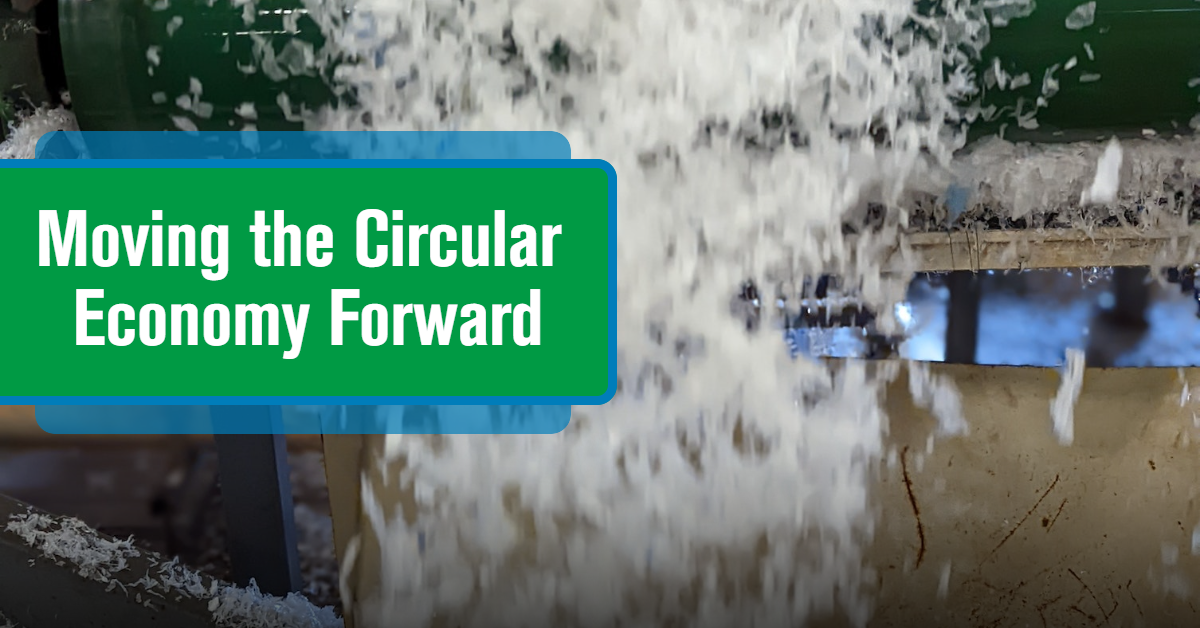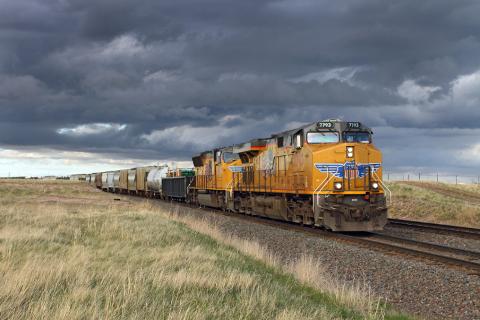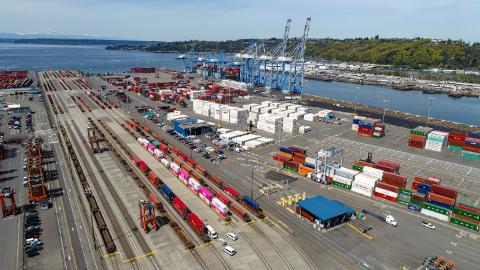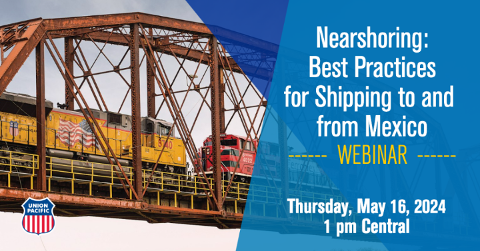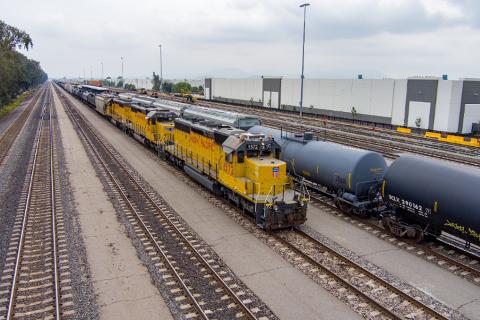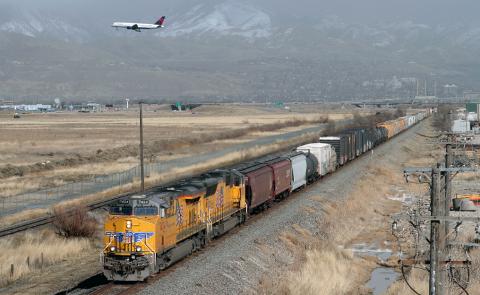Did you know less than 10% of plastics waste is being recycled today? Plastic producers are working to change that, making strong commitments to create a circular economy in which 100% of plastics packaging is reused, recycled, or recovered by 2040. The plastics industry is just one example of how companies are seeking to improve recycling and adopt the circular economy model.
Avangard Innovative is helping move that needle. The circular economy solutions company is helping businesses identify the gaps in their recycling programs so fewer materials that can be recycled end up in landfills. The company also plays a critical role in closed loop recycling, where waste material is converted into usable products once again.
Rectifying Recycling Gaps
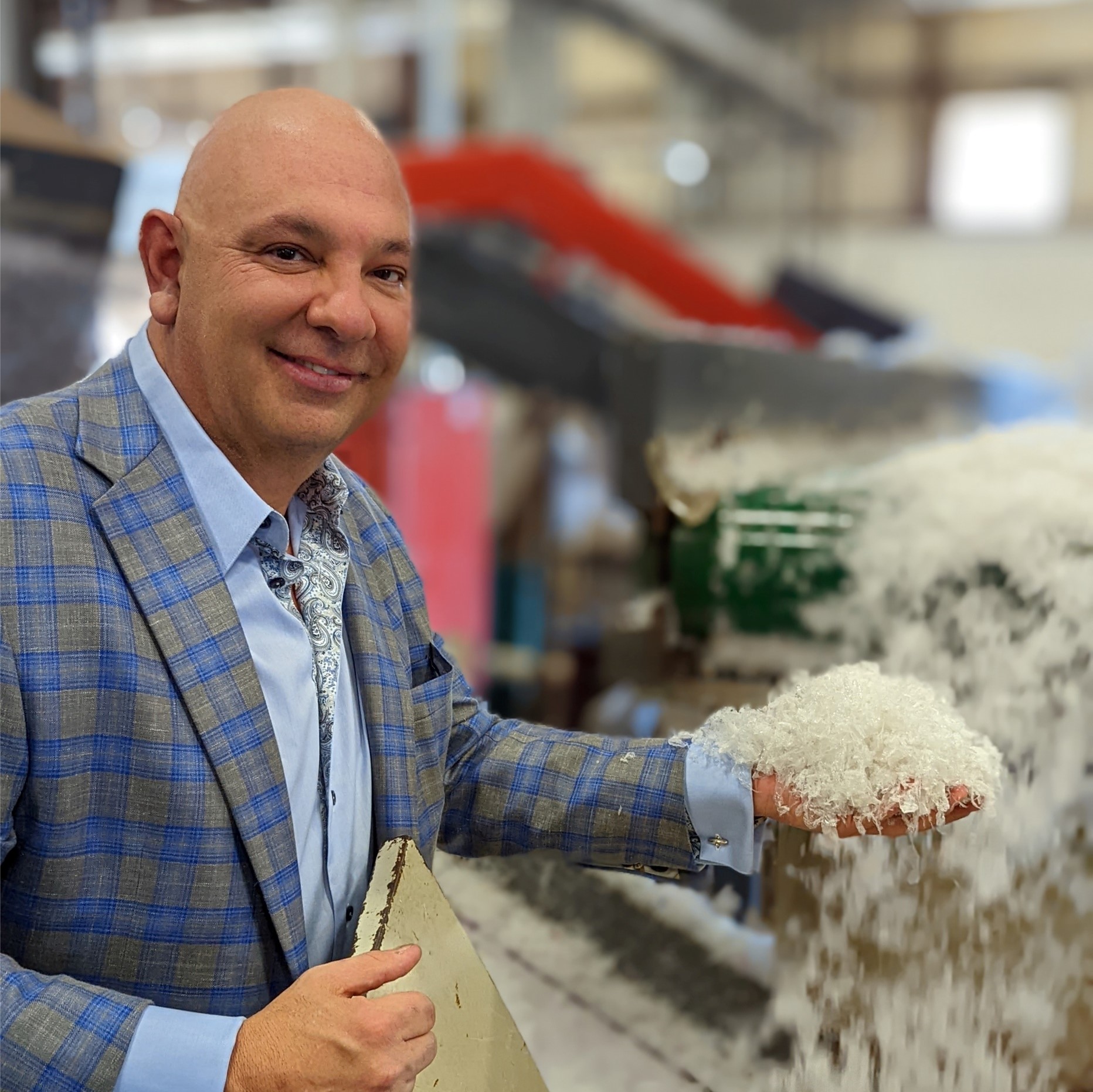
Rick Perez, Avangard Innovative CEO
What does it mean to have a “recycling gap”? Let’s say you work at a big box store where goods arrive on pallets wrapped in large quantities of plastic wrap. This plastic can be recycled, but sometimes it goes in the trash instead. That’s a recycling gap. Avangard Innovative is helping its customers close these kinds of gaps.
CEO Rick Perez founded the company 30 years ago with the goal of increasing the number of materials that are recycled. Today, the business operates in nine countries and is the largest film/post-consumer resin producer in the Americas. Avangard Innovative works with plastics producers, industrial companies, big box stores, grocery store chains and more to advance the vision Perez had three decades ago, and then some.
“We utilize artificial intelligence to help companies find their hidden green assets or, in other words, find recyclables going into the waste stream that could instead be monetized. That gives us the ability to scale recycling and truly identify all the potential recyclables,” Perez said. “We truly believe in a world with zero waste, so there's no waste landfill at all. That's really what we're trying to accomplish.”
Using a combination of hardware, software and smart API, Avangard’s Sustayn technology helps companies visualize, track, measure and manage their waste and recycling streams. For instance, Sustayne can identify if an employee puts plastic in the trash compactor rather than in the baler to be recycled. Armed with this knowledge, management can coach the employee on the proper behavior, thereby eliminating that recycling gap
“We will install a visual monitor with motion detection that is actually watching what is going into that compactor 24/7,” explained Eric Reinhard, Avangard Innovative President. “Artificial intelligence gives us the opportunity to look for anything that can be recycled. If you don't have that capability, how can you really stop recycled materials from getting into the landfill?”
Monetizing Materials
Capturing more materials that can be recycled is good for the planet, but it can also be good for the bottom line.
Perez refers to recyclable materials as green “assets” because those materials can be purchased by other companies who use them to make the products they sell.
This is a game changer in the evolution of recycling and the circular economy. For years, recycling came at a financial cost. Now, Avangard helps companies monetize recyclables, making sustainability profitable.
“The demand for recycled content in things like packaging is growing exponentially, so the opportunity for growth through circular economy solutions is massive,” Reinhard said.
“What we have seen, whether you're a brand owner, a retailer, or a waste converter, is everybody's doing the right thing by the environment. What we're trying to do at Avangard Innovative is that within the supply chain, everybody also makes money. Nobody loses out in this type of circular economy. That's the best thing that has ever happened to this model.”
Improving Recycling Efficiency to Lower Carbon Footprints
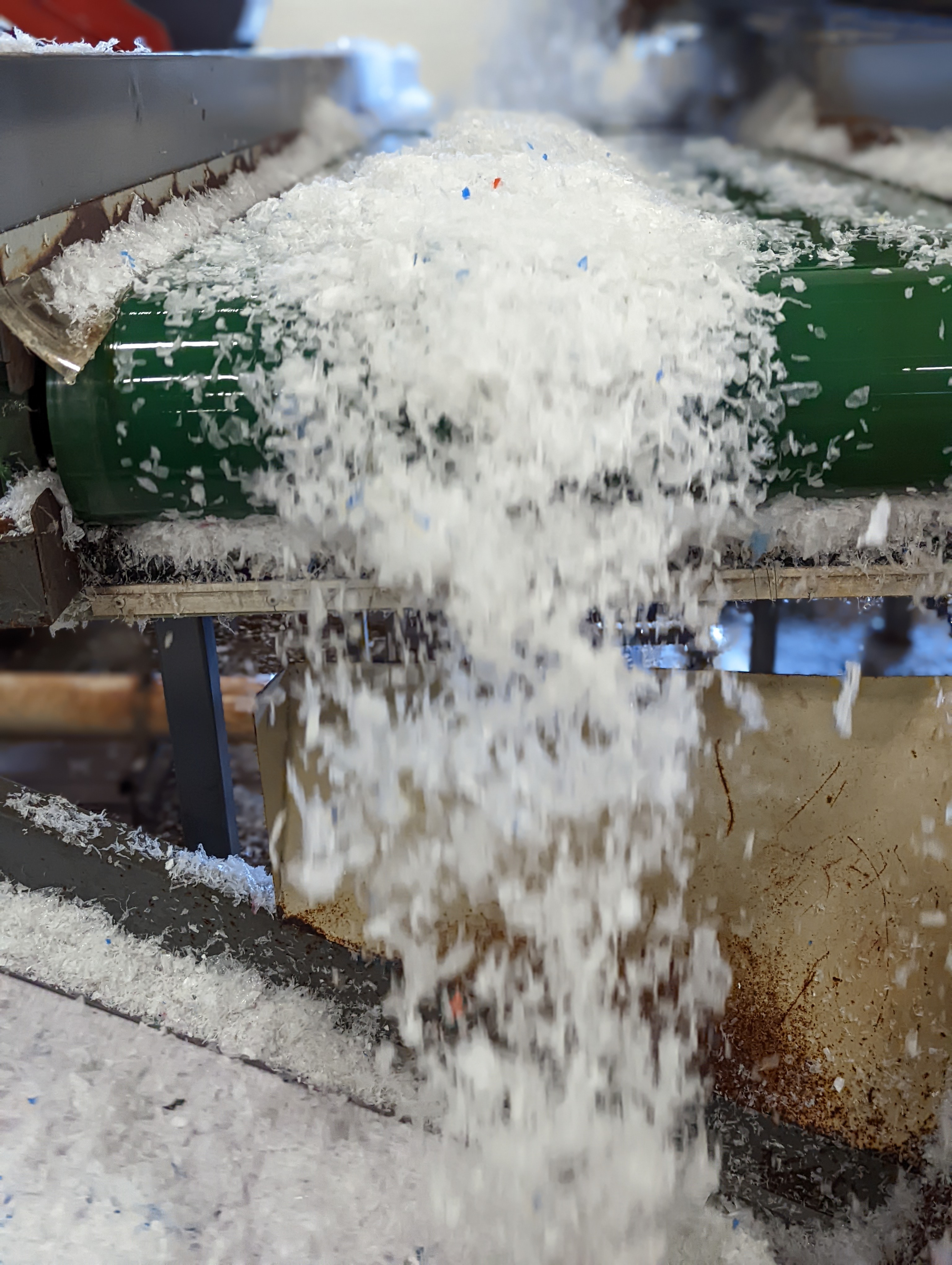
Plastic waste undergoes the conversion process at Avangard Innovative's Houston facility
Beyond identifying more green assets, Avangard Innovative also helps companies recycle them more efficiently.
To understand, let’s go back to the big box store. Now, employees are placing all plastic in a baler to be recycled. When the employee thinks the baler is full, she pushes a button, and the machine goes to work. The weight of the resulting bale may be 300 pounds, 400 pounds, or 500 pounds — it’s different every time because the machine doesn’t know the difference.
Until Avangard steps in. Now the baler is equipped with load cells that measure the weight of the plastic placed in it and the machine knows not to eject a plastic bale unless it’s at the maximum weight.
This is important because it allows for maximum payloads to be shipped. Transporting at max capacity minimizes the number of shipments to be managed, ultimately lowering the carbon footprint of that location. “It also maximizes the value that our clients are going to be paid for those materials because they’re paying for fewer movements,” Reinhard explained.
The result is a more wholistic approach to sustainability, where recycling waste is just one step in a broader effort to be more environmentally responsible.
“We are truly optimizing the whole supply chain and logistics,” Perez said. “We're trying to make recycling efficient, optimize movements, use fewer resources and lower the carbon footprint.”
Shipping Recyclables and PCR Responsibly
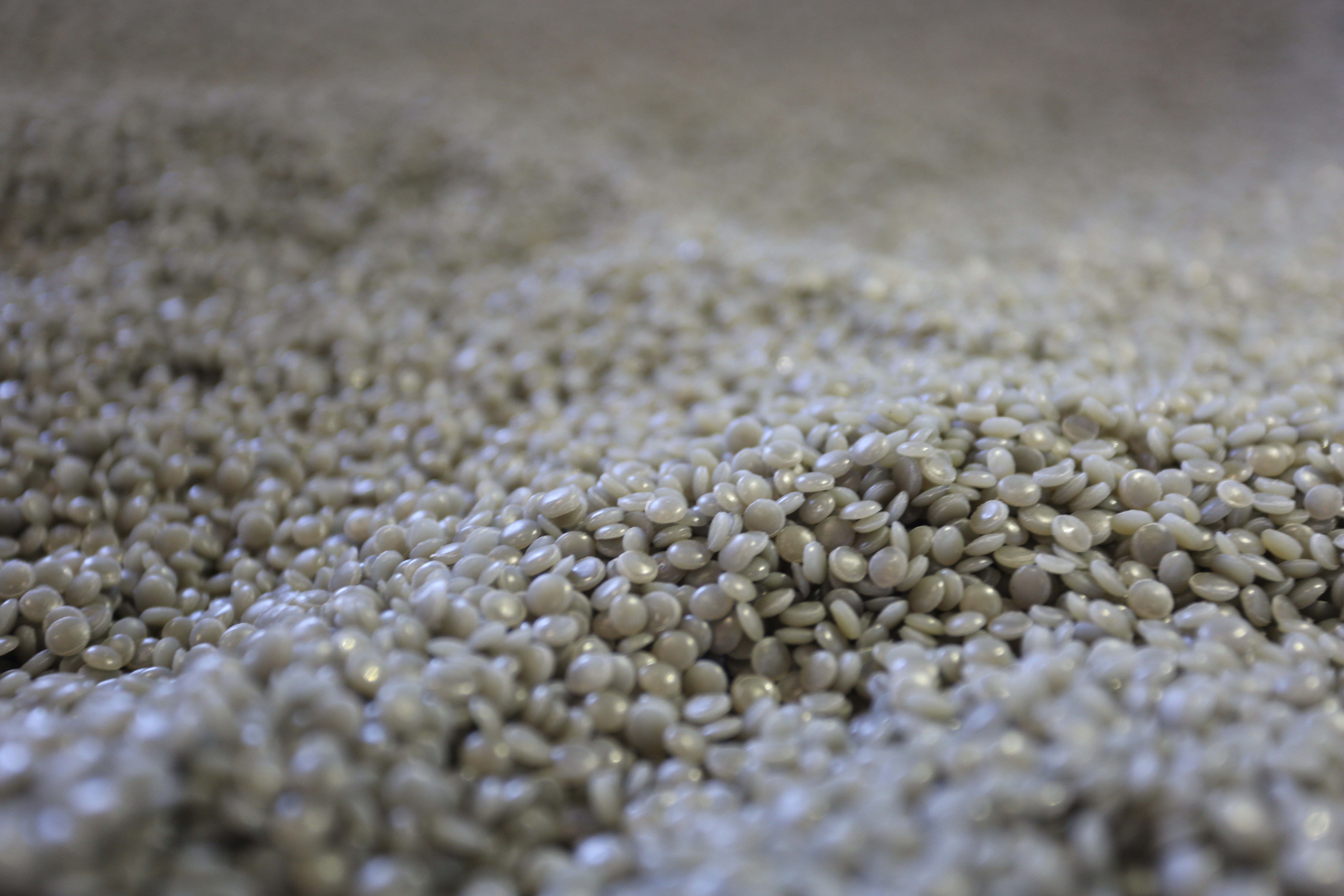
Plastic is recycled into post-consumer resin (PCR) pellets
Environmental responsibility is about more than creating a closed loop for products that might otherwise become waste. It’s also about how those products move between each stop along that loop.
The next step Avangard is taking to advance plastics recycling while minimizing the impact on the planet is shipping plastic waste and PCR by rail. On average, trains are three to four times more fuel efficient than trucks. Railroads can move one ton of freight nearly 500 miles on a single gallon of fuel, reducing the carbon footprint up to 75% versus trucks — and making trains the most environmentally responsible way to ship freight by land.
The impact of reducing transportation emissions adds up. If just 10% of the freight shipped by the largest trucks was moved by rail instead, it would cut greenhouse gas emissions by more than 17 million tons each year — the equivalent of removing 3.35 million cars from our highways.
“One of the best opportunities we have to reduce emissions is using rail to bring recyclable plastic materials back to the plant and ship PCR to our customers. Most of our customers receive in rail, and you have to be able to ship in large volumes because your customers are large scale. Rail is perfectly set up for those needs,” Perez said. “When you ship by truck, two things are happening: First, inefficiency within the logistics — managing that is very difficult. Second, you’re using more resources, which means that your carbon footprint is more significant. That's what we're trying to eliminate here, so rail is a key factor for us to do the right thing by the environment.”
Avangard Innovative has relied on over-the-road truck shipping throughout its 30-year history. But now, that’s changing. The company is investing in rail infrastructure at their Waller, Texas, facility. Once the project is complete, Avangard will be able to both receive and ship out products by rail directly. This approach strategically positions them to better align with the heavily rail supported plastics industry.
But Avangard is not waiting to take advantage of the benefits rail brings to their supply chain. Leveraging Union Pacific’s team of experts that focuses on supporting plastics circularity, the team developed a solution tailored to Avangard’s capabilities and needs. The company is currently shipping plastic bags by rail through the use of transloading, where trucks transport large bales of used plastic bags to a transload facility. There, they are transferred into rail cars for the long haul. They are then transloaded once more to trucks and make the short trip to their final destination.
These shipments are already making an impact on preventing plastic products from becoming waste. How big is that impact? If a bale of plastics weighs 1,000 pounds and a plastic bag weighs one ounce, that’s 16,000 plastic bags per bale. One hundred-twenty of these bales can fit in a boxcar, which means just a single rail car carries about 1.9 million plastic bags. Because a boxcar can carry about three times as many bales of plastic bags as a truck, each rail car removes three trucks off the road and cuts out the associated emissions as well.
Today, Avangard is promptly getting to market with PCR product moving by rail, simplifying their transportation operation, and significantly reducing the carbon footprint of their supply chain.
“The benefit of that paradigm shift to rail is that it creates a lot of efficiencies in terms of the carbon footprint, while also giving us the ability to move large volumes. The more we use rail, the less emissions are generated by transportation. That's where it's an integral part of our circular economy,” Perez said. “Rail is a must to be able to scale our business and to reach our own sustainability targets, which is why moving forward, rail will be our primary source of transportation.”
The Future of the Circular Economy
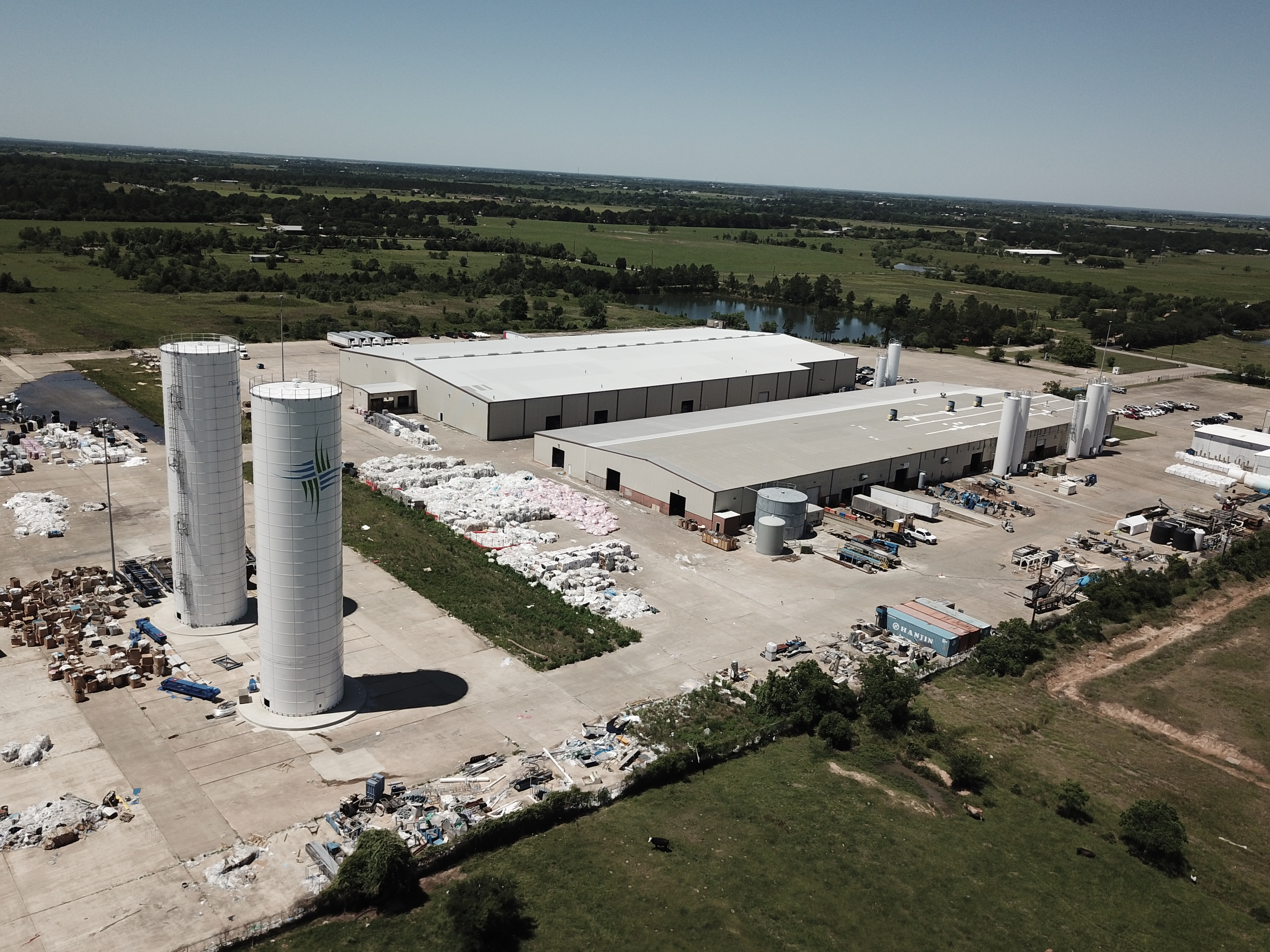
Avangard Innovative's Houston recycling facility
When Perez envisions the future of the circular economy, he sees the recycling industry growing, and rail shipping playing a significant role in supporting that growth.
“Most companies today are invested heavily in recycling and sorting,” Perez said. “As we're scaling our infrastructure, the movements will be bigger, the demand for rail will be bigger, and the environmental benefits will be bigger. Residential, post-commercial, everybody within that supply chain will be growing at the same time. This is the future, and it’s fun to be part of it right now.”
Learn More
To learn more about Avangard Innovative, visit the company's website.
If you’d like to learn more about reducing your company’s environmental impact by shipping your products by rail, answer a few quick questions and an expert will be in touch. If you have questions specific to shipping plastics or PCR, send an email to the plastics team.
Union Pacific has its own Climate Action Plan. Check out the report to learn more.
Related Articles
- Plastics and Sustainability: How Dow and Braskem Are Working Toward a Greener Future
- Plastics and the Circular Economy: Is Transportation the Missing Piece?
- As Plastic Production Grows, Pledge Targets Resin Containment
- Innovative Recycling Solutions Support Shift to a Circular Economy
- Rail: An Environmentally Responsible Way to Ship
- Working for a Sustainable Tomorrow: WM’s Approach to Mitigating Climate Change
- Can Transportation Solve the Landfill Problem?
- Freight Shipping and Its Impact on Climate Change
- Electric Locomotives: The Latest Step to Cut Freight Rail GHG Emissions
- How to Use Carbon Calculators to Reduce Transportation Emissions
- Transportation Modes Revealed: A Comprehensive Look

